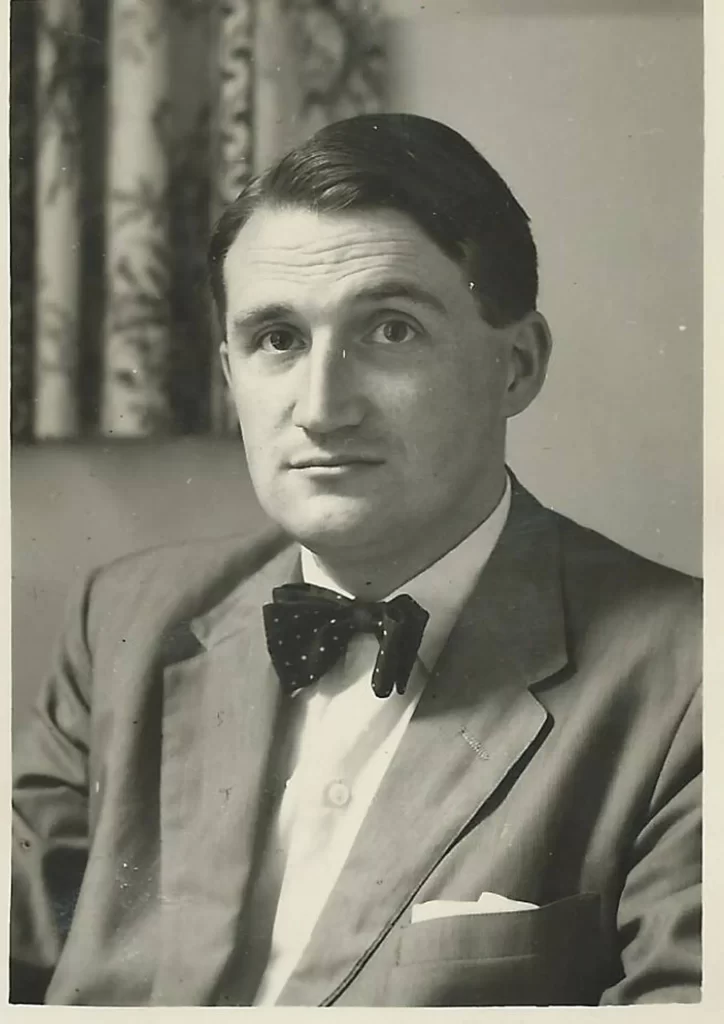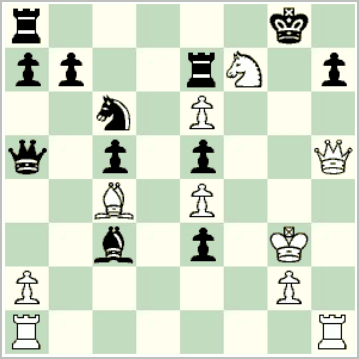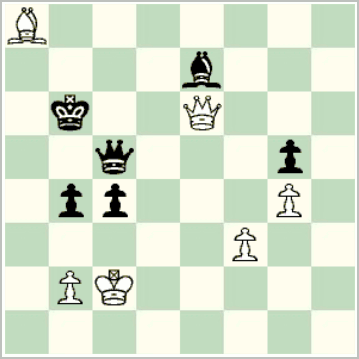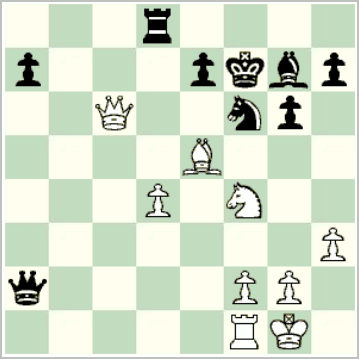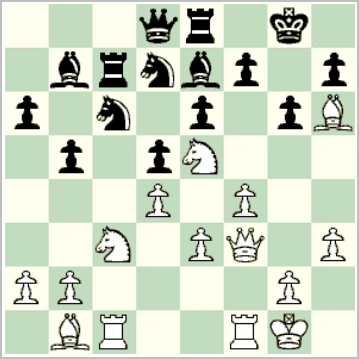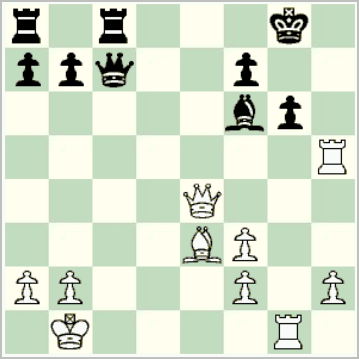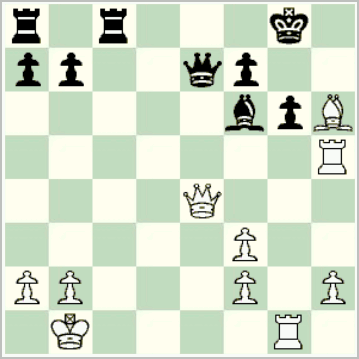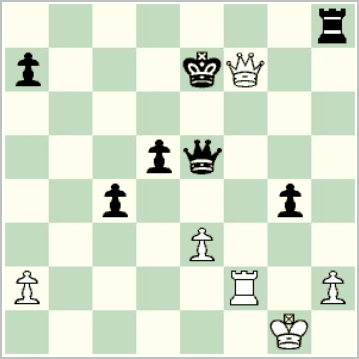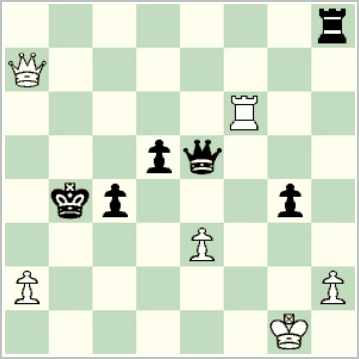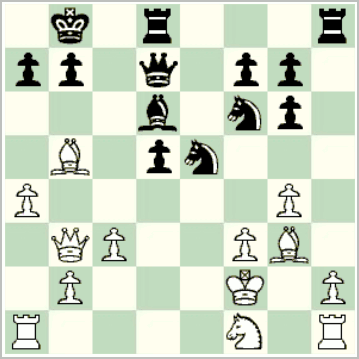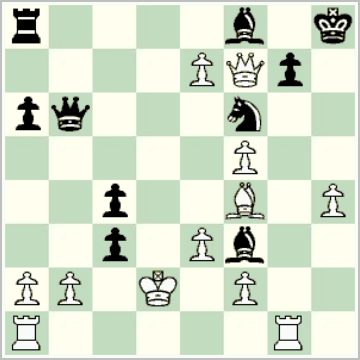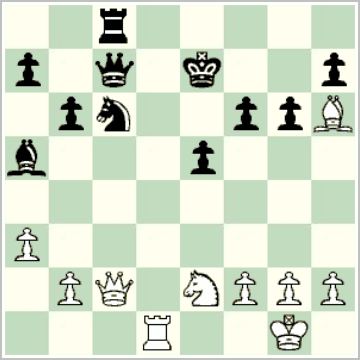The Irish Championship in 1983 was held, for the first and so far only time ever, in Castlebar. With continued sponsorship from IBM, the event attracted a large field of 32, including almost all of the top players in the country. The player on form and clear favourite was David Dunne, who had recently received the FM title, and who was rated, at 2406 (ICU), 142 points higher than second seed Philip Short.
There is very little information available on this event in the ICU web pages: the tournament pages give only the scores of the top ten finishers, without even the names of the others, and the ICU games archive has no games, as of the date of this post. It seems that a book was planned, but it never happened.
However, Fiacla Fichille had eight games, and the Irish Times had almost complete results of the first six rounds. In addition, Alan Ludgate sent all his scoresheets, including notes on the top pairings and scores in all rounds, and Derek McGill and Dave Salter provided game files with all of their games; many thanks to each. In all, this yields 31 of the maximum of 144 games. John Gibson’s archive of material included several relevant documents, including the flyer and a partial crosstable, and all relevant issues of Fiacla Fichille. An almost full report has been added to the Tournament pages here.
It’s striking how young the field was: seven of the top eight seeds (and eight of the top ten finishers) were aged in their early 20s: in addition to Dunne and Short, these were Eugene Curtin, John Delaney (defending champion), Colm Barry, Paul Wallace, and Eddie O’Reilly.
Dunne was undefeated and finished clear first on an unbeaten 7/9, and never fell out of the lead or joint lead at any stage. Four of his wins came against players in the top ten seeds: Alan Ludgate, Eddie O’Reilly, Philip Short, and Eugene Curtin.
Nevertheless, the championship was in play until the last round: Colm Barry could have shared the title if he had won his last round game against O’Reilly instead of drawing; as it was, he finished clear second on 6½. Delaney, Curtin, O’Reilly, and Wallace finished joint 3rd on 6, with Delaney taking the third place trophy on tie-break.
The diagram shows a critical moment, from round 7.
Entering the round, Dunne led by half a point from Barry, Delaney, and Short. He was paired against Curtin, who was one of a group a further ½ point back.
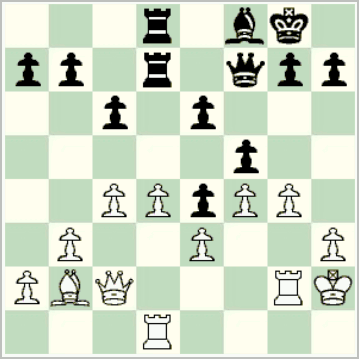
21… ?
Here the natural 21… g6 would equalise completely. Instead Curtin played 21… h6?, and after 22. Rdg1, compounded his problems with 22… Kh8?!. After 23. g5, he was already lost.
[Click to replay the full game.]
In the other games in this round, Delaney drew with Short and Barry with Wallace, leaving Dunne a clear point ahead of the field with two rounds to go, from where two draws were enough to clinch the title.
David Dunne had perhaps the most consistent career performance in the Irish championship of any player. In five championships, he finished 1st-2nd 1979 and 1981 (shared title, with Eamon Keogh and Short respectively), 1st-3rd 1982 (with Delaney and Short; lost for title to Delaney on tie-break), 1st 1983, and clear 2nd in 1988 (1st Short). However, Castlebar was the only time he finished as sole champion.

